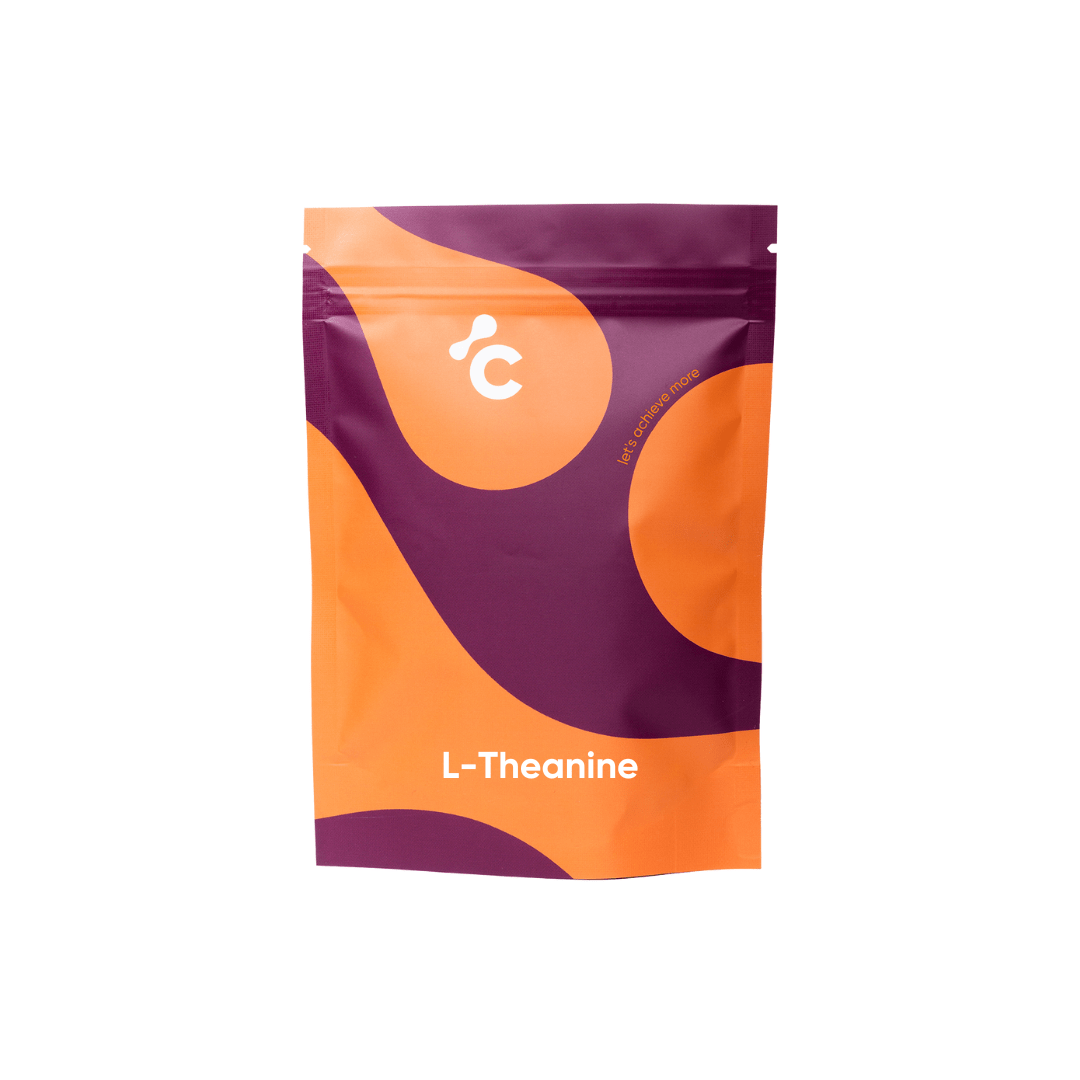L-Theanine and Magnesium: Insights from Real User Experiences

In today’s busy world, many people are looking for ways to reduce stress and anxiety. One approach gaining attention is using L-Theanine and Magnesium together. This article explores what people say about their experiences with these supplements, aiming to provide a broad perspective on their potential effects. It’s important to remember that the information here comes from personal stories and is not intended as medical advice or a guarantee of benefits. We simply want to share various opinions to help you understand how some individuals have felt using L-Theanine and Magnesium, including both the positives and the negatives.
Table Of Contents
Article Methodology
Our investigation follows a structured approach to ensure credibility and relevance:
- We delved into user discussions on various platforms, including Reddit and a Patient forum thread, focusing on conversations around the use of L-theanine and Magnesium.
- Emphasizing real-world experiences, we sought to compile a range of personal testimonies.
- It’s important to clarify that while we gather these insights, we do not endorse or verify their scientific accuracy. Instead, we present them as shared user experiences.
- Our goal is not to prescribe but rather inform, urging readers to view this article as a collection of individual journeys rather than a definitive guide.
What is L-Theanine?
L-Theanine, an amino acid found predominantly in tea leaves, is considered to have calming effects on the brain. It facilitates a state of relaxed alertness and clarity without inducing drowsiness. This unique property makes L-Theanine a popular choice for those seeking to alleviate stress and anxiety naturally. Unlike many supplements that might cause lethargy or sedation, L-Theanine allows for relaxation without compromising cognitive functions. Its ability to smooth out the nervous edge while preserving alertness is why many individuals incorporate it into their daily stress management routines.
What is Magnesium?
Magnesium is an essential mineral that plays a pivotal role in numerous bodily functions, including muscle and nerve function, blood sugar control, and blood pressure regulation. It’s also critical for the production of energy and protein. Despite its abundance in a healthy diet, many people turn to supplements to ensure they meet their daily magnesium needs, especially in the face of stress and anxiety. Magnesium’s role in supporting the nervous system makes it a key player in managing stress levels, combating insomnia, and promoting overall mental health. Its natural muscle-relaxing properties further contribute to its appeal as a supplement for enhancing relaxation and well-being.
Combining L-Theanine with Magnesium
User experiences with combining L-Theanine and Magnesium for stress and anxiety management are diverse, with many reporting positive outcomes. Several users highlighted improvements in anxiety, mood stabilization, and sleep quality. One user specifically noted the benefits of a magnesium blend that includes L-Theanine, suggesting it offers more relief than magnesium alone. The discussion also touches on the broader context of supplement use, with some users emphasizing the value of getting nutrient levels tested before starting supplementation to avoid potential adverse effects. However, some users report minimal benefits or mention specific side effects like gastrointestinal discomfort and increased irritability. Others express skepticism, suggesting that perceived benefits might be placebo effects or emphasizing the importance of dietary changes before turning to supplements.
Overview of User Opinions
The collective user opinion points to a predominantly positive experience with the L-Theanine and Magnesium combo. Individuals cite significant enhancements in their ability to manage stress, anxiety, and sleep disorders. A typical sentiment is captured in a user’s comment: “I discovered this combo at the beginning of this year and it is life changing! My experience is similar to yours, wish I’d found it sooner.” Despite the varied outcomes, the overarching goal for most is improved relaxation and stress relief, with a considerable majority finding this combination helpful.
Key Benefits According to Users
Users have shared a variety of benefits they attribute to combining L-Theanine with Magnesium, including reduced anxiety, improved sleep quality, and enhanced mood.
- Reduced Anxiety and Heart Palpitations: Many users reported a significant reduction in their anxiety levels and the elimination of anxiety-related heart palpitations, describing these effects as life-changing.
- Improved Sleep Quality: Users frequently mentioned that taking Magnesium, especially in the form of Magnesium Glycinate at night, contributed to deeper and more restful sleep. L-Theanine was also noted for enhancing sleep quality without causing drowsiness during the day.
- Enhanced Mood and Well-being: Several users experienced an uplift in mood and a general sense of well-being, attributing these changes to the calming effects of L-Theanine and the mood-stabilizing properties of Magnesium.
- Increased Relaxation and Stress Relief: The combination of Magnesium and L-Theanine was praised for its ability to promote relaxation and help users manage stress more effectively.
- Anger Management: One user observed that Magnesium supplementation made it difficult for them to get angry, indicating a potential role in temper and anger management.
These benefits, as reported by users, suggest that combining Magnesium and L-Theanine could offer a natural and effective approach to managing anxiety, improving sleep, and enhancing overall mood and well-being. One user summarized their experience, saying, “This combination has genuinely uplifted my mood and overall well-being, making my days more manageable and my nights more restful.”
How Do People Incorporate L-Theanine and Magnesium
Adjustments in dosage and timing are common, as individuals seek to find the optimal balance for their needs. For example, one user might find that 200 mg of L-Theanine in the morning and 300 mg of Magnesium at night works best, while another may adjust to 150 mg of L-Theanine twice a day with 400 mg of Magnesium before bed, based on their personal experiences with anxiety levels and sleep patterns. This process of trial and error underscores the personalized nature of supplementing with L-Theanine and Magnesium for mental wellness.
Potential Side Effects According to Users
The side effects mentioned by users regarding Magnesium and L-Theanine supplementation are few but noteworthy:
- Diarrhea and Gastrointestinal Issues: Several users highlighted that taking too much Magnesium, especially at night, led to gastrointestinal discomfort and diarrhea the following morning. This emphasizes the importance of adjusting the dosage to suit individual tolerance levels.
- Headaches: A user mentioned experiencing severe headaches as a side effect of taking L-Theanine, suggesting that while beneficial for some, the supplement might not agree with everyone.
- Increased Irritability and Anxiety: Contrary to the expected calming effects, one user reported that Magnesium Glycinate and L-Theanine increased their irritability and anxiety, pointing out that individual reactions can vary significantly.
- Sense of Impending Doom: Although beneficial for many, Magnesium was noted by a user to potentially induce a strong sense of impending doom and anxiety attacks in some individuals, highlighting the diverse responses people can have to supplements.
These instances underscore the complexity of supplementing with Magnesium and L-Theanine, where benefits for many might come with side effects for some. Users advocate for a cautious approach, starting with lower doses and paying attention to how one’s body reacts before making any adjustments.
Disclaimer
This article is purely for informational purposes only and is based on user experience. Therefore, it does not provide any medical advice. Talk to a medical professional before starting any new supplements and check the legal status of nootropics in your area.
Sources:
- https://www.reddit.com/r/Biohackers/comments/1766q1f/magnesium_and_ltheanine_are_life_changing_for/
- https://patient.info/forums/discuss/has-anyone-taken-magnesium-or-l-theanine-for-panic-attacks–670639
- https://www.ncbi.nlm.nih.gov/pmc/articles/PMC6836118/
- https://www.talkspace.com/mental-health/conditions/articles/l-theanine-for-anxiety/
- https://www.ncbi.nlm.nih.gov/pmc/articles/PMC8080935/
- https://www.ncbi.nlm.nih.gov/pmc/articles/PMC6024559/
- https://www.medicalnewstoday.com/articles/magnesium-for-sleep





